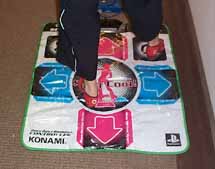|
Innovation at risk?
|
 |
December 19, 2001: 3:01 p.m. ET
PC gamers demand something different, then promptly reject it.
By Staff Writer Chris Morris
|
NEW YORK (CNNmoney) - PC gamers are a fickle lot.
They demand advanced graphics. They demand adrenaline rushes with every new title. And most of all, they demand constant innovation. So why are they so quick to dismiss it when it's handed to them?
I've read a lot this year about how the PC gaming industry has explored new boundaries. But if you look below the surface you'll see the usual suspects continue to dominate the field, while the console world continues to push the boundaries successfully.
PC gamers howl they're constantly presented with re-runs of the same games. Yet 2001 saw the debut of one of the most original titles to come along in the past decade: "Majestic," a psychological Web-based thriller that actually involved you - the player - in the game, sending you e-mails, calling you on the phone and sending you Instant Messages when you least expected it. In a world filled with seemingly infinite first-person shooters, and endless "Diablo" clones, here was a game that truly did something different.
And it flopped.
| |

|
|
An actual IM from Majestic | |
"Majestic" drew such an anemic audience that Electronic Arts abandoned the story half-way through. Of the 800,000 people who started to register for the free, first installment of the game, only 71,200 completed the process. That number fell to 10,000 to 15,000 subscribers when it came time to pay. It was a grand experiment, but one that ultimately cost EA between $5 million and $7 million. EA expects to shut the game down completely by the middle of next year.
Not that the company is licking its wounds.
"Maybe the consumer didn't get it," said Jeff Brown, vice president of corporate communications for EA, "but in five years, everyone's going to be making games based on this engine. I'm not apologizing for anything!"
Meanwhile, the console world is taking significantly more chances - and seeing some rich rewards.
Konami started pushing the limits earlier this year, porting its arcade genre-buster "Dance Dance Revolution" to the PlayStation. To play the game, you've not only got to buy the software, but you'll also need a specialized "Twister"-like controller to lay out on your living room floor (total cost: roughly $75). As arrows point in various directions, you move your feet to different squares. It's not just a game; it's a workout.
So why the discrepancy? Part of it is sheer numbers. Console gamers vastly outnumber PC gamers. A bigger part, though, is the flexibility consoles offer. PC gaming tends to be a solitary experience. Consoles tend to be a more social experience.
"A lot of different genres play well in [a console] environment," said P.J. McNealy, research director for GartnerG2. "They don't require three months' worth of work to get through."

|
|
|
Players bust a move in Dance Dance Revolution | |
There's also the age discrepancy in the two fields. Serious and hard-core PC gamers (that's folks who play more than Freecell and Solitaire) tend to range from 20 to 45 years old. Consoles skew younger, capturing players as young as 6 years old - and usually hang on to them until they hit 30 or so. With a wider selection of target markets, publishers can try different approaches.
Still, analysts say there's hope for PC gamers. They might fear change, but they ultimately learn to accept it.
"Majestic's an example of the type of game we'll see in the future," said McNealy. "It was like offering driving lessons to 10-year-olds. They're going to need it, but it's just too soon."
Click here to send email to Chris Morris 
|
|
|
|
|
|

|

